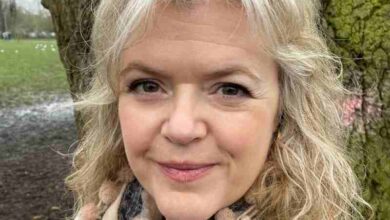Claire Novak: The Evolution of a Hunter and Symbol of Strength in Supernatural

Claire Novak is a name that resonates deeply within the fan community of the long-running television series Supernatural. Introduced as the daughter of Jimmy Novak—the vessel of the angel Castiel—Claire’s journey is one of the most emotionally complex and character-rich arcs in the series. First appearing in Season 4, Claire’s initial presence was brief but powerful, establishing her as a pivotal emotional anchor to Castiel’s human side. Her story expands over later seasons, transforming her from a lost girl into a fierce and self-reliant hunter.
Claire’s childhood is shattered when her father becomes the vessel for Castiel. This event, intended as a divine mission, results in profound trauma for Claire and her family. Her father disappears into a world of angels and demons, her mother becomes emotionally unavailable, and Claire is thrust into a system that doesn’t understand or support her. This origin shapes her personality—strong-willed, distrusting, and determined.
Reintroduction and Redemption
Claire re-enters the storyline in Season 10 as a troubled teenager hardened by years of abandonment and institutional living. She is introduced as rebellious, confrontational, and fiercely independent. Her interactions with Castiel and the Winchester brothers reflect a mix of resentment, confusion, and a yearning for connection.
It is through these interactions that Claire begins to understand the complexities of her father’s sacrifice and Castiel’s burden. Though her initial reaction is anger and blame, over time she comes to see Castiel not only as a being of power but as someone who genuinely cares for her. This nuanced relationship lays the foundation for Claire’s transformation.
Finding a New Family
One of the central themes in Claire Novak’s arc is the concept of found family. While her biological family was torn apart by supernatural events, Claire finds stability and emotional support through characters like Jody Mills and Alex Jones. Jody, a motherly figure and fellow hunter, takes Claire under her wing and provides a sense of home and structure she never had.
This new environment allows Claire to grow. Surrounded by strong female role models and allies, she begins to shed her defensiveness and embrace her identity. Her character evolves from a reactive teen into a proactive hunter, driven by a clear sense of justice and personal mission.
Becoming a Hunter
Claire’s transition into a hunter is not just about learning how to fight monsters; it’s about reclaiming control over her life. For Claire, hunting becomes a way to channel her anger and trauma into something meaningful. She’s not just surviving anymore—she’s fighting back.
Her skill set develops quickly. Claire demonstrates proficiency in hand-to-hand combat, weaponry, and strategic thinking. She proves herself on multiple hunts, including confrontations with angels, werewolves, and other supernatural threats. In one notable episode, she is turned into a werewolf but survives and is cured—an experience that deepens her understanding of the supernatural world and her empathy for others who suffer.
Emotional Growth and Complexity
What makes Claire Novak’s character compelling is her emotional complexity. She is not defined solely by her pain or her strength but by the interplay of the two. Claire is angry, yes, but also deeply loyal. She is cynical, but not without hope. Over time, the layers of her personality unfold, revealing someone who desperately wants to love and be loved, even if she doesn’t always know how to express it.
Her growth is particularly evident in how she interacts with other characters. Her early encounters with Sam and Dean are marked by suspicion and rebellion. But as she matures, she forms genuine bonds with them, learning from their experiences while forging her own path.
Queer Representation and Identity
Claire Novak also stands out as an important figure in the show’s representation of LGBTQ+ identities. Her implied romantic feelings for Kaia Nieves—a fellow hunter introduced in later seasons—are portrayed with sensitivity and realism. Their connection is not overly dramatized or tokenized but presented as a natural extension of their emotional bond.
This representation is significant in a genre often criticized for sidelining or stereotyping queer characters. Claire’s identity is not her only defining trait; rather, it complements the multifaceted aspects of her character. Her queerness is part of who she is but does not overshadow her strength, resilience, or personal journey.
Symbolism and Character Parallels
Many fans and critics have noted the parallels between Claire and Dean Winchester. Both characters share traits such as impulsiveness, emotional walls, and a deep sense of responsibility. Claire, in many ways, mirrors a younger version of Dean—a child shaped by loss, fighting to find meaning and connection.
However, Claire is not merely a carbon copy. Her journey diverges in important ways, particularly through her embrace of vulnerability and emotional honesty. While Dean often hides behind sarcasm and stoicism, Claire learns to confront her feelings head-on. This distinction makes her evolution even more powerful.
The Wayward Daughters Arc
Claire Novak was intended to be a central figure in the Wayward Sisters spin-off—a project that, though ultimately not greenlit, highlighted the potential of a female-led ensemble in the Supernatural universe. Alongside characters like Jody Mills, Alex Jones, and Kaia Nieves, Claire represented a new generation of hunters.
The pilot episode for Wayward Sisters showed Claire as a leader, fully confident in her abilities and committed to protecting others. The show promised to explore not just supernatural threats but also the interpersonal dynamics and emotional growth of its characters. Though the series was not picked up, Claire’s role in it remains a fan favorite and a testament to her development.
Legacy and Impact
Claire Novak’s impact extends beyond her screen time. She represents a shift in the narrative focus of Supernatural, bringing younger, more diverse voices to the forefront. Her arc challenges traditional gender roles within the genre, portraying a young woman who is tough yet emotionally intelligent, fierce yet compassionate.
She also offers a narrative of healing. Claire doesn’t overcome her trauma overnight. Her progress is messy, nonlinear, and real. This authenticity resonates with many viewers, particularly those who have experienced loss, abandonment, or identity struggles.
Conclusion
Claire Novak is more than just a supporting character; she is a symbol of resilience, identity, and transformation. From a frightened child dealing with divine interference to a capable hunter forging her own destiny, Claire’s journey is one of the most compelling in Supernatural. Her evolution reminds us that strength comes in many forms—and that the past does not define the future.
As a character, Claire challenges stereotypes, adds depth to the narrative, and brings a much-needed perspective to the Supernatural universe. Whether or not her story continues on screen, her legacy as a fan-favorite and cultural icon is firmly cemented.



